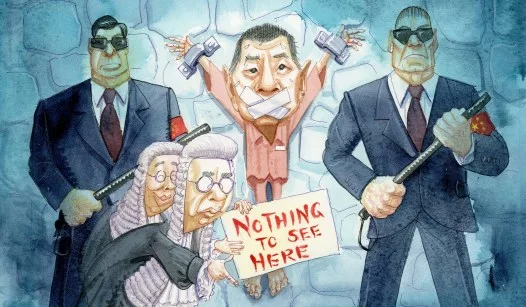Jimmy Lai, the prominent pro-democracy activist and founder of the Apple Daily newspaper, has become a symbol of the struggle for freedom in Hong Kong. As the political climate in the region continues to deteriorate under Xi Jinping’s rule, reports suggest that Lai is facing severe and inhumane treatment while imprisoned.
Lai’s case has drawn international attention, highlighting the broader implications of China’s crackdown on dissent and the erosion of civil liberties in Hong Kong. Since the imposition of the National Security Law in 2020, many activists, journalists, and ordinary citizens have found themselves at the mercy of a legal system increasingly used as a tool of repression.
The circumstances surrounding Lai’s detention are particularly alarming. Arrested in August 2020, he was charged with multiple offenses, including collusion with foreign forces, a vague accusation that has been wielded against many in the pro-democracy movement. The lack of transparency in the legal proceedings and the harsh conditions of his imprisonment have raised serious concerns among human rights advocates and international observers.
Reports from various human rights organizations indicate that Lai is being subjected to solitary confinement, limited access to legal representation, and inadequate medical care. These conditions not only violate basic human rights standards but also reflect a broader strategy by the Hong Kong authorities to silence dissent and instill fear among those who dare to speak out against the government.
The international community has responded to Lai’s situation with increasing alarm. Calls for his release have come from various quarters, including foreign governments and human rights organizations. The United States, in particular, has been vocal in condemning the treatment of political prisoners in Hong Kong, urging the Chinese government to adhere to its commitments to uphold the rights and freedoms of its citizens.
Despite the pressure, the Hong Kong authorities have remained defiant, continuing their crackdown on pro-democracy activists with little regard for international opinion. This raises critical questions about the future of civil liberties in Hong Kong and the extent to which the global community can influence change.
As the situation unfolds, it is crucial for citizens, both in the United States and around the world, to stay informed and engaged. The plight of Jimmy Lai serves as a poignant reminder of the ongoing struggle for democracy and human rights in the face of authoritarianism. By shedding light on these issues, we can contribute to a broader dialogue about freedom and justice, not only in Hong Kong but also in our own communities.
In conclusion, the treatment of Jimmy Lai is emblematic of the challenges facing pro-democracy advocates in Hong Kong. As the political landscape continues to shift, it is essential to remain vigilant and support efforts to uphold human rights and democratic values. The fight for freedom is far from over, and it is the responsibility of all who cherish liberty to stand in solidarity with those who are oppressed.
